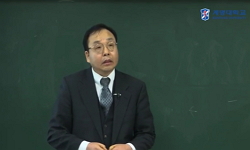본 연구는 21세기 중국식 발전모델에 대한 새로운 이해의 지평을 넓히기 위해 기획 되었다. 2001년 미국 신경제의 거품이 꺼지고 중국의 성장활력이 다른 지역의 경제회 복에 크게 기여하면서...
http://chineseinput.net/에서 pinyin(병음)방식으로 중국어를 변환할 수 있습니다.
변환된 중국어를 복사하여 사용하시면 됩니다.
- 中文 을 입력하시려면 zhongwen을 입력하시고 space를누르시면됩니다.
- 北京 을 입력하시려면 beijing을 입력하시고 space를 누르시면 됩니다.
부가정보
국문 초록 (Abstract)
본 연구는 21세기 중국식 발전모델에 대한 새로운 이해의 지평을 넓히기 위해 기획 되었다. 2001년 미국 신경제의 거품이 꺼지고 중국의 성장활력이 다른 지역의 경제회 복에 크게 기여하면서 ‘신아시아시대—베이징 컨센서스(the Beijing Consensus)’가 다양 한 문맥에서 조명되고 있다. 여기서는 기본적으로 베이징 컨센서스가 사회주의혁명의 유산으로서의 중국식(중국특색) 사회주의에 원천을 둔다는 주장에 합류한다. 이른바 중국특색 사회주의란 현 중국공산당의 노선・방침・정책의 기조로서 직접적으로는 ‘덩 샤오핑(鄧小平)이론—실사구시實事求是사상’에 토대를 둔다. 따라서 본고는 덩샤오핑 이론의 전후맥락을 추적해 베이징 컨센서스의 원천, 즉 중국특색 사회주의의 혁명사・ 사상사・문화사적 실체와 그 전개양상을 검토했다. 또한 그에 대한 독법의 하나로 세계 최대의 현실사회주의와 베이징 컨센서스라는 성장모델을 만들어낸 사회주의의 중국화 실험이 전통사상에 뿌리를 둔 실사구시, 실용주의, 인민주의(민본사상), 소강小康사상 등을 매개로 전개되었다는 사실에 주목했다. 연구진행은 선행적으로 마오쩌둥(毛澤東) 시대와 연결되는 사회주의 중국화의 배경 속에서 덩샤오핑이론이 차지하는 담론사적 위치를 파악했다. 그런 다음에 덩샤오핑이론의 요체인 ‘소과도론’을 재구성해 중국특 색 사회주의의 역동성과 다면성을 관찰했다. 더해서 그 문화적·사상적 토대로서 전통 문화와의 연원관계를 추적・규명함으로써 중국모델의 원천으로서의 의미망을 보다 포 괄적이고 다원적인 시야에서 점검해보았다.
다국어 초록 (Multilingual Abstract)
This study was planned out to broaden the horizon of a new understanding of Chinese growth models in the 21st century. As the bubbles of the American new economy burst in 2001 and the growth energy of China greatly contributed to the economic restorat...
This study was planned out to broaden the horizon of a new understanding of Chinese growth models in the 21st century. As the bubbles of the American new economy burst in 2001 and the growth energy of China greatly contributed to the economic restoration of other regions, new light has been shed on the ‘New Asian Age—Beijing Consensus’ under various context. This study joins the argument that the Beijing Consensus originates from Chinese socialism(socialism with Chinese characteristics), which is a heritage of the socialist revolution. So-called socialism with Chinese characteristics refers to the keynote of routes, principles, and policies of the Chinese Communist Party based on the ‘Deng Xiaoping Theory—empirical tradition ideology’. Accordingly, this paper reviewed the revolutionary, ideological, and cultural nature of socialism with Chinese characteristics and its development aspects as the source of the Beijing Consensus by tracking the context of the Deng Xiaoping Theory. In addition, this paper paid attention to the fact that the experiment on Chineseization of socialism, which generated the world’s largest real socialism and a growth model called the Beijing Consensus, was mediated by empirical tradition, pragmatism, populism(people-oriented ideology), and small tranquility rooted in the traditional ideology. The study was carried out by examining the discursive position of the Deng Xiaoping Theory in the background of Chineseization of socialism, which is connected to the Mao Zedong Era. ‘Small transition,’ the key point of the Deng Xiaoping Theory, was reorganized to observe the dynamics and manifold of socialism with Chinese characteristics. Moreover, by tracking and investigating the relationship with traditional cultures based on the cultural and ideological foundation, this paper inspected the semantic network of the Chinese model in more comprehensive and plural perspectives.
목차 (Table of Contents)
- Ⅰ. 이끄는 말
- Ⅱ. 사회주의의 중국화: 실사구시
- Ⅲ. 덩샤오핑이론: 실체와 전통성
- Ⅳ. 끝맺는 말
- 참고문헌
- Ⅰ. 이끄는 말
- Ⅱ. 사회주의의 중국화: 실사구시
- Ⅲ. 덩샤오핑이론: 실체와 전통성
- Ⅳ. 끝맺는 말
- 참고문헌
- 국문초록
- Abstract
참고문헌 (Reference)
1 주장환, "사회주의 초급단계론에 대한 중국의 새로운 인식: ‘시진핑 신시대 중국특색 사회주의 사상" 사회과학연구원 15 (15): 176-200, 2018
2 Arrighi, Giovanni, "베이징의 애덤 스미스:21세기의 계보" 길 2009
3 아리프 딜릭, "베이징 컨센서스" 소명출판 2016
4 Meisner, Maurice, "마오의 중국과 그 이후 2" 이산 2010
5 Vogel, Ezra Feivel, "덩샤오핑 평전: 현대 중국의 건설자" 민음사 2014
6 伍雲, "鄧小平理論與中國傳統文化的淵源關係" 4 (4): 2004
7 趙金元, "鄧小平理論與中國傳統文化淵源關係新探" 2001
8 陸魁宏, "鄧小平理論是毛澤東思想的繼承和發展. 毛澤東鄧小平與馬克思主義中國化" 中央文獻出版社 1999
9 畢劍橫, "鄧小平理論對毛澤東思想的繼承發展創新. 毛澤東鄧小平與馬克思主義中國化" 中央文獻出版社 1999
10 李方祥, "鄧小平與中國傳統文化探魅" (4) : 2001
1 주장환, "사회주의 초급단계론에 대한 중국의 새로운 인식: ‘시진핑 신시대 중국특색 사회주의 사상" 사회과학연구원 15 (15): 176-200, 2018
2 Arrighi, Giovanni, "베이징의 애덤 스미스:21세기의 계보" 길 2009
3 아리프 딜릭, "베이징 컨센서스" 소명출판 2016
4 Meisner, Maurice, "마오의 중국과 그 이후 2" 이산 2010
5 Vogel, Ezra Feivel, "덩샤오핑 평전: 현대 중국의 건설자" 민음사 2014
6 伍雲, "鄧小平理論與中國傳統文化的淵源關係" 4 (4): 2004
7 趙金元, "鄧小平理論與中國傳統文化淵源關係新探" 2001
8 陸魁宏, "鄧小平理論是毛澤東思想的繼承和發展. 毛澤東鄧小平與馬克思主義中國化" 中央文獻出版社 1999
9 畢劍橫, "鄧小平理論對毛澤東思想的繼承發展創新. 毛澤東鄧小平與馬克思主義中國化" 中央文獻出版社 1999
10 李方祥, "鄧小平與中國傳統文化探魅" (4) : 2001
11 鄧小平, "鄧小平文選, 第二卷" 人民出版社 1994
12 鄧小平, "鄧小平文選, 第二卷" 人民出版社 1994
13 鄧小平, "鄧小平文選, 第二卷" 人民出版社 1994
14 鄧小平, "鄧小平文選, 第二卷" 人民出版社 1994
15 鄧小平, "鄧小平文選, 第二卷" 人民出版社 1994
16 鄧小平, "鄧小平文選, 第三卷" 人民出版社 1993
17 鄧小平, "鄧小平文選, 第三卷" 人民出版社 1993
18 鄧小平, "鄧小平文選, 第三卷" 人民出版社 1993
19 鄧小平, "鄧小平文選, 第三卷" 人民出版社 1993
20 鄧小平, "鄧小平文選, 第三卷" 人民出版社 1993
21 鄧小平, "鄧小平文選, 第三卷" 人民出版社 1993
22 鄧小平, "鄧小平文選, 第三卷" 人民出版社 1993
23 鄧小平, "鄧小平文選, 第三卷" 人民出版社 1993
24 鄧小平, "鄧小平文選, 第三卷" 人民出版社 1993
25 鄧小平, "鄧小平文選, 第三卷" 人民出版社 1993
26 鄧小平, "鄧小平文選, 第三卷" 人民出版社 1993
27 鄧小平, "鄧小平文選, 第三卷" 人民出版社 1993
28 中央文獻硏究室, "鄧小平思想年譜(1975~1997)" 中央文獻出版社 1998
29 毛澤東, "毛澤東選集, 第二卷" 人民出版社 1991
30 毛澤東, "毛澤東選集, 第二卷" 人民出版社 1991
31 毛澤東, "毛澤東選集, 第三卷" 人民出版社 1991
32 毛澤東, "毛澤東選集, 第一卷" 人民出版社 1991
33 鄧榕, "我的父親鄧小平, 上卷" 中央文獻出版社 1993
34 黄平, "中国與全球化 : 华盛顿共识还是北京共识" 社会科学文献出版社 2005
35 俞可平, "中国模式與"北京共识"—超越"华盛顿共识"" 社会科学文献出版社 2006
36 Ramo, Joshua Cooper, "The Beijing Consensus : Notes on the New Physics of Chinese Power" Foreign Affairs Policy Centre 2004
37 서진영, "21세기 중국 정치 : ‘성공의 역설’과 중국적 사회주의의 미래" 폴리테이아 2008
동일학술지(권/호) 다른 논문
-
공공부문 및 민간부문의 거버넌스는 삶의 질을 향상시키는가? - 중국을 중심으로 -
- 원광대학교 한중관계연구원
- 이유태
- 2021
- KCI등재
-
- 원광대학교 한중관계연구원
- Li Longfei
- 2021
- KCI등재
-
- 원광대학교 한중관계연구원
- 丁琰珅
- 2021
- KCI등재
-
International Human Rights Law Regulation of Unilateral Economic Sanctions
- 원광대학교 한중관계연구원
- Rao Ning Ning
- 2021
- KCI등재





 eArticle
eArticle







